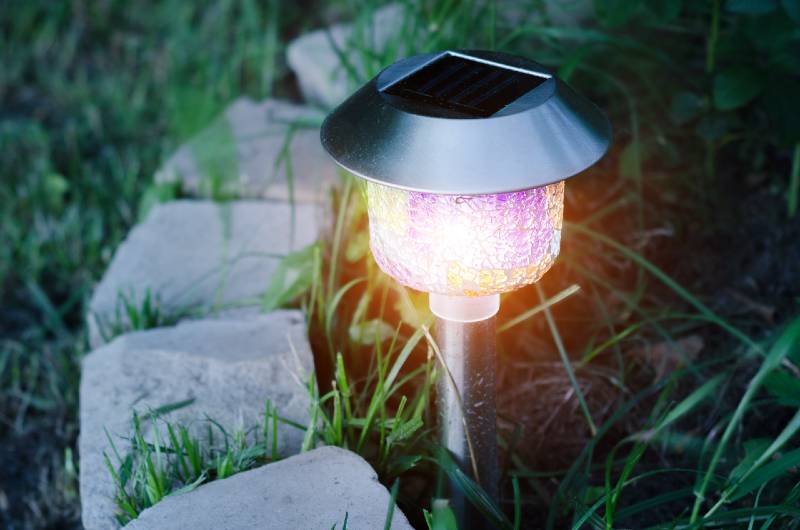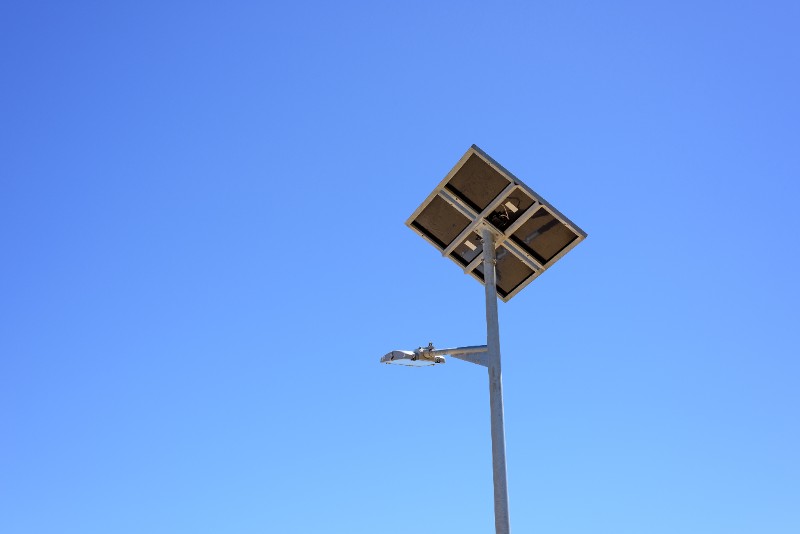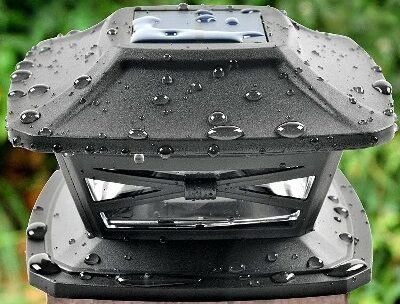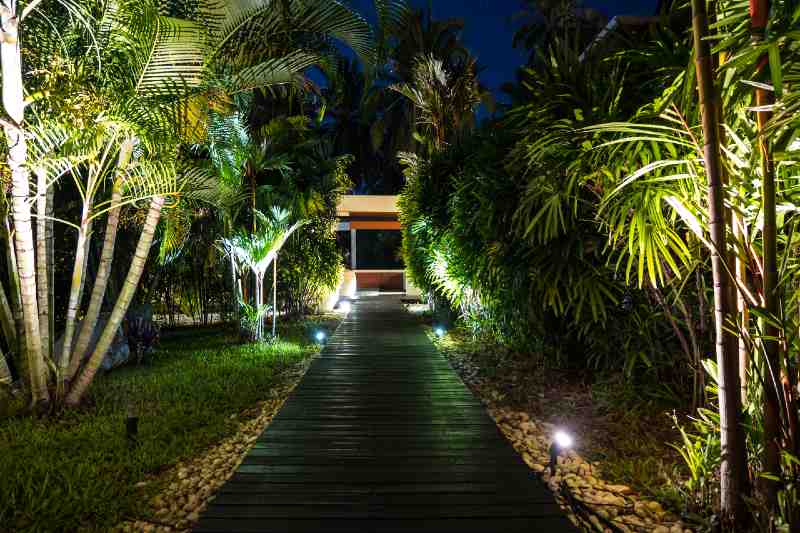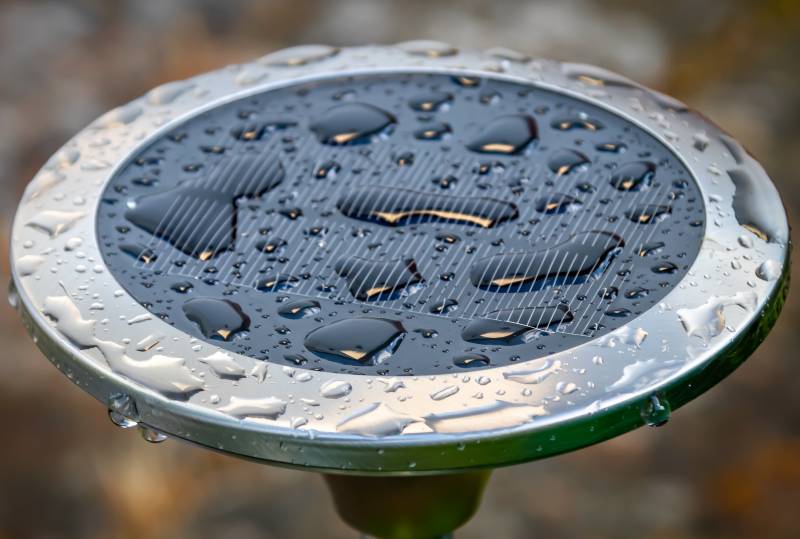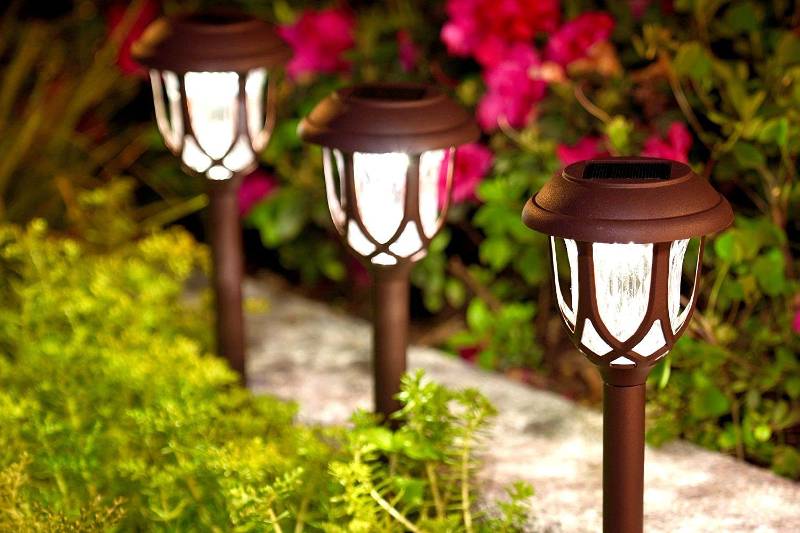Tired of your solar lights dimming too early in the evening?
The key to prolonged and reliable illumination lies in the heart of your lighting system: the battery.
That’s why I’ve tested over 50 batteries and narrowed them down to the best options to ensure your solar lights stay bright from dusk till dawn.
In this guide, I’ll walk you through the best batteries, breaking down their features, benefits, and how they stack up against one another, so you can choose the perfect one for you.
Best Batteries for Solar Lights Selection
Editor’s Choice
POWEROWL Batteries for Solar Lights
Key Features
- Battery Capacity: 2,800mAh
- Battery Voltage: 1.2V
- Cycle Life: Up to 2,000
- Warranty: 365 days
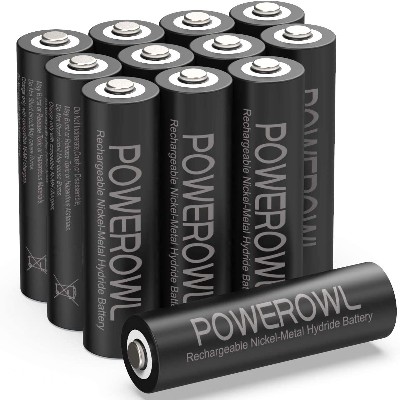
My top selection is the POWEROWL Batteries for Solar Lights, which boast a 2,800mAh capacity and 1.2V voltage.
I’ve been using these batteries in my garden’s rope solar lights, and they’ve proven their worth by consistently powering the lights for up to 8 hours each night without interruption or dimming.
What stands out to me is the anti-leaking feature of the Ni-MH cells, which gives me peace of mind since I don’t have to worry about potential damage from acid spills.
With a durability of up to 2,000 full charge and discharge cycles, these batteries are designed to last—potentially up to 5.5 years of continuous use.
Based on my own experience over the past three years, their performance remains strong and reliable.
Plus, the 365-day warranty provides an extra layer of security, ensuring that I’m covered in case of any issues.
If there’s one drawback, it’s their price, which is on the higher side.
However, considering their longevity and reliability, I find the POWEROWL Batteries to be a worthwhile investment for anyone looking to power their solar lights effectively.
Pros
- High capacity of 2,800mAh
- Up to 2,000 cycles
- Anti-leaking Ni-MH cells
- 12-month warranty
Cons
- A bit on the pricey side
Key Features
- Battery Capacity: 2,400mAh
- Battery Voltage: 1.2V
- Cycle Life: Up to 1,200
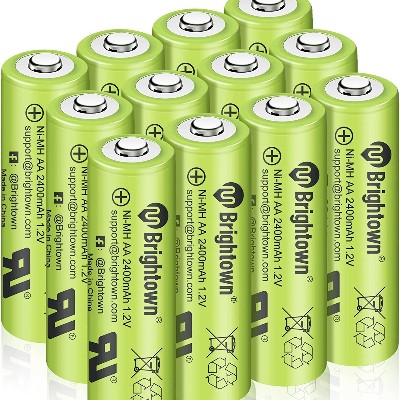
The Brightown Batteries for Solar Lights offer a capacity of up to 2,400mAh, which is enough for most solar lights to stay lit all night.
I use these AA rechargeable batteries for the lights on my pathway, and they consistently light up for about 7 hours every night without getting dim.
Brightown batteries can also handle extreme temperatures – they have already gone through last Christmas’ cold snap and I can confidently say that they held up well.
My only problem is that they don’t come with a warranty, which is a bit of a bummer.
All in all, the Brightown Batteries for Solar Lights are a great option if you need reliable power for your solar lights but don’t want to spend too much money.
Pros
- Good capacity of 2,400mAh
- Up to 1,200 cycles
- Anti-leaking Ni-MH cells
Cons
- No warranty included
Best NiMH Battery
Henreepow Batteries for Outdoor Solar Lights
Key Features
- Battery Capacity: 1,300mAh
- Battery Voltage: 1.2V
- Cycle Life: Up to 1,200
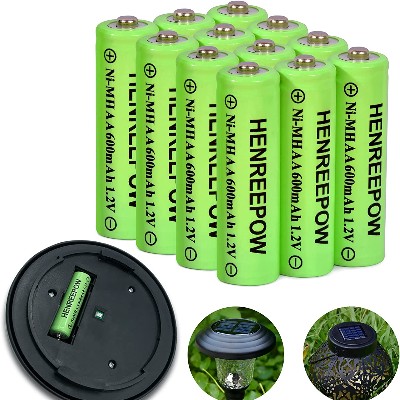
I bought a 12-pack of Henreepow AA NiMH batteries for the 12 solar swaying lights in my garden, which stay on from evening till past midnight.
The Ni-MH cells guarantee a charge/discharge cycle of up to 1,200 times – I have been using them for over 8 months now without even a single blip in their performance.
They’re also designed to prevent leaks, which helps avoid any power loss or potential damage to the lights.
The only thing that is missing with these batteries is some sort of warranty – but considering the modest price tag, I can’t complain.
Overall, I find Henreepow Batteries a solid choice if you need reliable and long-lasting batteries for your solar lights.
Pros
- Good capacity of 1,300mAh
- Up to 1,200 cycles
- Anti-leaking Ni-MH cells
Cons
- No warranty included
Best NiCAD Battery
EBL Rechargeable Batteries for Solar Lights
Key Features
- Battery Capacity: 1,100mAh
- Battery Voltage: 1.2V
- Cycle Life: Up to 1,200
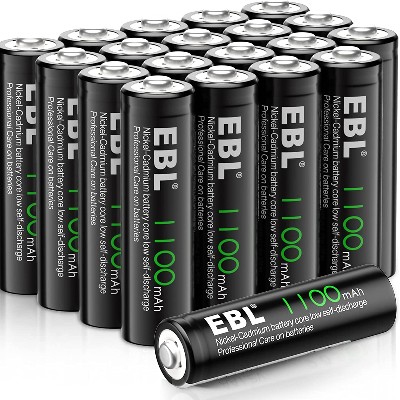
I know there are a lot of fans for NiCAD batteries out there, which is why I decided to try the EBL Batteries for Solar Lights.
With a 1,100mAh capacity, they reliably power my lights for about 6 hours nightly.
Last Halloween, these batteries impressively ran my pumpkin solar lights from 7 pm to 3 am.
These NiCAD cells are also designed to last, offering up to 1,200 charge/discharge cycles while maintaining 75% capacity after 3 years of use.
I particularly appreciate the stainless steel housing, which protects against corrosion and leaks, ensuring my lights stay safe.
One catch is the memory effect, which can reduce their performance if they are not fully charged and discharged every time, but that is an easy fix with a bit of discipline.
Despite that, the EBL Batteries for Solar Lights are still super reliable and affordable – making them a great choice if you want to invest in NiCAD batteries.
Pros
- Good capacity of 1,100mAh
- Up to 1,200 cycles
- Stainless steel cell housing
- An affordable price
Cons
- Memory loss can be a hassle if not handled properly
- No warranty included
Best Li-ion Battery
JESSPOW Li-ion Batteries for Solar Lights
Key Features
- Battery Capacity: 1,600mAh
- Battery Voltage: 3.7V
- Cycle Life: Up to 3,000
![JESSPOW-Li-ion-Batteries-for-Solar-Lights JESSPOW 18500 Rechargeable Batteries, IMR 18500 Rechargeable Li-ion Battery 1600mAh 3.7V [ for Flashlight, Solar Garden Light ] with Button Top (4Pack)](https://solarenergyhackers.com/wp-content/uploads/2023/05/JESSPOW-Li-ion-Batteries-for-Solar-Lights.jpg)
The JESSPOW Batteries for Solar Lights come with a large 1,600mAh capacity and 3.7 voltage, guaranteeing that no matter how long the night, your lights will stay lit up.
I use these batteries for my solar tiki torches and they flicker on and off for over 7 hours every night which is more than enough for my summer barbecues.
My only issue is the steep price tag – you’ll need to dish out a bit more money for these compared to the other batteries.
But if you don’t mind spending then I think these are great Li-ion batteries that have proven their worth in my home.
Pros
- Large capacity of 1600mAh
- High-quality Li-ion cells
- Up to 3,000 charging cycles
Cons
- Expensive compared to other batteries
- No warranty included
Best Bang for the Buck
Camelion Batteries for Tiny Solar Lights
Key Features
- Battery Capacity: 300mAh
- Battery Voltage: 1.5V
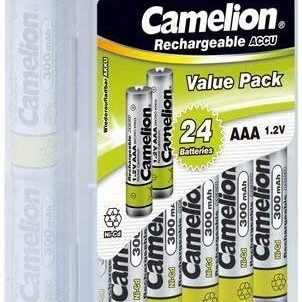
The Camelion Batteries for Solar Lights are my go-to when it comes to 1.5V batteries.
They come with a modest 300mAh capacity, but that powers up my holiday decorations lights for about 4 hours per night.
I also appreciate the safe and stable NiCAD cells that work in cold winter and hot summer days without any problems.
However, I’d have been happier if Camelion offered a product warranty just in case something went wrong.
Plus, I wish they had a higher capacity to make the lights last longer, but that’s just me nitpicking I guess.
Anyway, I still think these are the best bet for those looking for 1.5V batteries with an affordable price tag and reliable performance.
Pros
- The moderate 1.5V voltage
- Safe NiCAD cells
- Extremely affordable price tag
Cons
- Low capacity of 300mAh
- No warranty included
Best LiFePO4 Battery
HQRP LiFePO4 Flat Top Batteries for Solar Lights
Key Features
- Battery Capacity: 1,200mAh
- Battery Voltage: 3.2V
- Cycle Life: Up to 1,000
- Warranty: 200 days
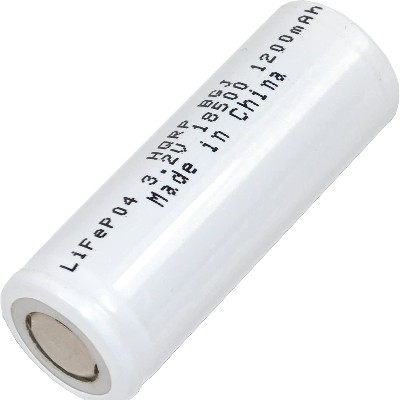
Last but not least, we have the HQRP Batteries for Solar Lights that pack a 3.2V voltage with a 1,200mAh capacity.
I use these to power my solar garden post lights and they’re enough to keep the lights illuminated once it gets dark until the sun rises again.
Their LiFePO4 cells are also well-known for their safety features – I can rest assured that my lights are safe from short circuits, overcharging, and overheating.
I appreciate that HQRP offers a 200-day warranty which adds an extra layer of protection and peace of mind.
One drawback is the price tag, which is a bit high for a 4-pack – but I assure you it’s worth every penny.
However, if you’re looking for a reliable and safe set of batteries for your solar lights, then the HQRP Batteries are worth checking out.
Pros
- Good capacity of 1,200mAh
- High 3.2V voltage
- Cycle life of 1000
- Safe LiFePO4 cells
- 200-day warranty
Cons
- A bit on the pricey side
Related Article: Can I Use a Higher mAh Battery in Solar Lights?
What Are Solar Light Batteries?
Solar light batteries are special rechargeable batteries that save the energy captured by solar panels during the day.
Then, at night or when it’s dark and there’s no sun, they release this energy to power the solar lights.
This is why solar lights can work on their own, without needing to be connected to your home’s electricity.
These batteries come in several types, like Nickel-Cadmium (NiCd), Nickel-Metal Hydride (NiMH), Lithium-Ion (Li-ion), and Lithium Iron Phosphate (LiFePO4).
Each type has its features, like how much power it can hold, how long it can last, and the voltage it provides, to match different kinds of solar lights and their needs.
How to Choose the Best Batteries for Solar Lights?
1. The Battery Type
There are many types of batteries available and each of these batteries has different characteristics.
Here’s a quick overview:
- NiCAD (Nickel Cadmium): They maintain a consistent voltage until the energy is depleted and have a pretty long cycle life. But the main drawback is the memory effect which reduces their capacity over time.
- NiMH (Nickel Metal Hydride): Most batteries used for solar lights are NiMH because they can hold more charge and last longer than NiCAD. They also don’t suffer from memory effect issues, have a higher energy density, and are more environmentally friendly.
- LiFePO4 (Lithium Iron Phosphate): They are the safest ones you can get, as they pass many safety tests such as impact, overcharge, short circuit, temperature, drop, and low-pressure tests.
- Li-ion (Lithium Ion): They have a higher voltage output, a shorter charge time than other types, and a higher energy density. The only downside is their expensive price tag.
So you should choose the battery type that fits your needs the most.
2. The Battery Capacity
Battery capacity tells you how much energy a battery can store and release. It’s like a tank’s capacity but for energy instead of water.
This energy storage is measured in milliamp-hours (mAh), which is a way to tell how much electricity a battery can provide in one hour.
The bigger the mAh number, the longer the battery can power something, like your solar lights.
Think of it like a backpack: the more stuff (or energy) it can hold, the longer you can go without needing a refill (or recharge).
So, a battery with a higher mAh can keep your solar lights shining longer into the night.
I’ve made sure that the batteries I’m recommending can keep your lights on for at least 6-8 hours, even in the not-so-ideal situations.
3. Number of Batteries
The batteries we’re talking about come in packs of different sizes, like 4, 12, or even 24 batteries in one pack.
The number of batteries in a pack can change how much it costs, so you should pick the pack size that fits what you need.
I usually like to buy a bigger pack of batteries if they’re good quality and work well.
This way, I always have extra batteries handy in case one stops working.
4. The Depth of Discharge
The Depth of Discharge (DoD) of a battery tells you how much of the battery’s total power you can use without causing harm to it.
Let’s say a battery’s total power is 1,000mAh.
If its DoD is 70%, you can use 700mAh of its power safely.
If you use more than that, you risk damaging the battery over time because it drops below the level it’s supposed to stay above to be healthy.
It’s a good idea to choose batteries with a high DoD, like 70% or more, so you can use more of the battery’s power safely and not worry about damaging it.
5. Memory Effect
The memory effect in a battery is like the battery getting used to being only partially charged.
If you regularly charge a battery only halfway, it might start to “think” that this halfway point is as full as it gets, and you won’t get the full power it’s capable of.
For example, if a battery is only charged 50% all the time, it may forget about the other 50% of its capacity.
To prevent this from happening, it’s important to choose a battery that fits the needs of your solar lights well.
I’ve thoroughly tested all the batteries listed here to ensure they don’t have this memory problem or if they do, it’s very slight.
6. The Number of Cycle Charges
The number of cycle charges tells you how long a battery can last.
It’s the count of how many times you can charge and then use up the battery before it doesn’t hold as much power as it used to.
The more charge cycles a battery has, the longer you can use it before it needs replacing.
I’ve chosen batteries that can go through up to 1,000 charge cycles or more, meaning they’re built to last and give you good value for the money you spend on them.
7. Compatibility with the Solar Light
Before buying a battery for your solar lights, it’s important to check the voltage and amperage they need.
For instance, if your light needs 3.7V and 2A, your battery should match these requirements.
If the battery’s voltage is too high, it could harm your lights.
If it’s too low, the lights won’t get enough power to function properly.
I’ve selected batteries with a variety of voltage levels, so you should be able to find one that fits your solar lights perfectly.
9. Price
Now let’s talk money.
It can feel daunting to find a battery that’s both effective and fits your budget.
Just remember, a higher price tag doesn’t always mean you’re getting a better product.
I believe that everyone should have access to batteries that are both reliable and won’t empty their wallet.
That’s why I’ve chosen batteries that offer great performance without being too expensive.
This way, you can find one that meets your needs without stretching your budget.
10. Warranty
Lastly, let’s talk about the warranty.
A warranty can tell you how much trust the manufacturer has in their product.
It’s like a promise from them that they believe in the quality of their batteries and are ready to replace them if something goes wrong.
So, it’s wise to choose batteries that come with a warranty – it gives you an extra layer of security.
The batteries I’ve selected for you, each one come with at least a 1-year warranty or a 30-day money-back guarantee, offering you more confidence in your purchase.
Pros and Cons of Solar Lights Batteries
Pros
- Cost Effective: The batteries store the energy the solar panels collect and make it available when needed. This helps you reduce the need for additional energy sources, in turn saving money on electricity bills
- Eco-Friendly: The batteries grab their energy from the sun and therefore don’t emit any emissions or use any of the earth’s resources. This helps minimize your carbon footprint
- Reliable Performance: They will save you from worries about unexpected power outages as they can provide you with energy even on cloudy or rainy days.
- Accessible: You can get solar batteries from most hardware stores or online. So no matter where you are, you can easily access them
Cons
- Safety Issues: The wrong type of battery or incorrect use can increase the risk of fires and dangerous chemical spills. So be sure to only purchase from trusted sources and handle them with caution
- Harmful Materials: Some batteries contain hazardous materials like lead and cadmium that can be harmful to the environment if not disposed of or recycled correctly
- Replacement: Although the batteries are rechargeable for a long time, they will eventually need to be replaced. This adds extra cost to the overall setup of your solar lights
FAQs
Which Batteries Are Best for Solar Lights?
The best batteries for solar lights are typically Nickel-Metal Hydride (NiMH) or Lithium Phosphate (LiFePO4) due to their capacity, durability, and eco-friendliness.
Which Solar Batteries Last the Longest?
Lithium-ion (Li-ion) batteries tend to last the longest for solar lights, providing numerous charge cycles and stable performance.
Do Solar Lights Need Special AA Batteries?
Solar lights need special rechargeable AA batteries that are designed to efficiently store and utilize solar energy.
Conclusion
As promised, we’ve reviewed the 7 best batteries for solar lights, their features, and how to choose the right one for you.
And if you ask me, I’d recommend the POWERFUL Batteries for Solar Lights for their high capacity, long cycle life, and excellent safety features.
A piece of specific advice: consider your solar light’s specific requirements and your usage patterns when choosing a battery.
Like finding the right key for a lock, selecting the right battery ensures your solar lights will shine brightly and reliably, night after night.
Do you still have any questions?
Let me know in the comments below.

